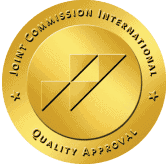Are you ready to transform your relationship with substances and reclaim control over your life? You deserve evidence-based treatment that addresses both the thoughts and behaviors driving your addiction. Cognitive behavioral therapy (CBT) offers proven strategies to help you break free from destructive patterns and build lasting recovery.
What is cognitive behavioral therapy in addiction treatment?
You may be wondering how changing your thoughts can help overcome addiction. Cognitive behavioral therapy represents one of the most researched and effective approaches to addiction treatment. This structured, goal-oriented therapy helps you identify and change negative thought patterns that fuel addictive behaviors.
When you engage in CBT, you work with trained therapists to:
- Recognize triggers and high-risk situations
- Develop healthy coping strategies
- Challenge distorted thinking patterns
- Build problem-solving skills
- Create relapse prevention plans
- Address co-occurring mental health concerns
Treatment centers integrate CBT across all levels of care, from Drug rehab through Outpatient programs. Research shows that CBT produces statistically significant improvements in addiction recovery, with enhanced outcomes when combined with other evidence-based approaches.
What are the signs you could benefit from cognitive behavioral therapy?
You might be experiencing patterns that indicate CBT could transform your recovery journey. Recognizing these signs represents the first step toward meaningful change.
Common indicators include:
- Persistent negative self-talk and self-defeating thoughts
- Difficulty managing cravings or urges to use
- All-or-nothing thinking patterns
- Overwhelming feelings of guilt, shame, or hopelessness
- Repeated relapse despite genuine efforts to quit
- Inability to cope with stress without substances
- Destructive behavioral patterns you can’t seem to break
- Co-occurring anxiety, depression, or trauma symptoms
- Difficulty maintaining healthy relationships
- Lack of effective coping strategies
- Feeling stuck in cycles of negative thinking
- Problems with impulse control
Professional treatment centers recognize these patterns and provide specialized CBT interventions tailored to addiction recovery needs.
How does the cognitive behavioral therapy process work?
When you begin CBT in addiction treatment, you’ll experience a structured yet personalized approach designed to create lasting change. The process adapts to your specific needs while following proven protocols.
Your CBT journey typically includes:
- Initial assessment to identify thought patterns and behaviors
- Collaborative goal-setting with your therapist
- Weekly individual or group therapy sessions
- Practical exercises between sessions
- Thought record keeping and analysis
- Behavioral experiments to test new approaches
- Skills practice in real-world situations
- Regular progress evaluation and adjustment
In Drug rehab settings, you might participate in daily CBT groups. Partial hospitalization programs (PHP) typically offer CBT sessions 3-5 times per week. As you progress to Intensive outpatient programs (IOP), you’ll continue CBT work 2-3 times weekly. Outpatient programs (OP) maintain CBT support with weekly sessions.
Why is immediate treatment with cognitive behavioral therapy critical?
You don’t have to wait another day to start changing destructive thought patterns. Every moment spent in active addiction reinforces negative neural pathways and harmful behaviors. Delaying treatment can lead to:
- Deepening of addictive thought patterns
- Increased risk of overdose or medical complications
- Progressive damage to relationships and career
- Worsening of co-occurring mental health conditions
- Financial consequences that limit future treatment options
- Legal problems from substance-related behaviors
- Loss of motivation and hope for recovery
- Physical health deterioration
Treatment centers emphasize early intervention because CBT effectiveness increases when you address patterns before they become more entrenched. Studies show that combining CBT with medication-assisted treatment can increase retention rates from 8% to 56%, demonstrating the power of comprehensive care.
The most effective cognitive behavioral therapy techniques
Professional treatment programs employ specific CBT techniques proven effective for addiction recovery. You’ll learn practical skills that create immediate improvements while building long-term resilience.
Core CBT techniques include:
- Cognitive restructuring to challenge addiction-related thoughts
- Behavioral activation to rebuild healthy routines
- Mindfulness integration for craving management
- Exposure therapy for trigger desensitization
- Problem-solving training for life challenges
- Assertiveness training for healthy boundaries
- Relaxation techniques for stress management
- Activity scheduling to prevent boredom and isolation
- Values clarification to strengthen motivation
- Communication skills for relationship repair
Treatment centers customize these techniques based on your substance use history, co-occurring conditions, and personal goals. The structured nature of CBT makes it particularly effective across all program levels.
How cognitive behavioral therapy transforms your recovery journey
You’ll experience profound changes as CBT rewires your thinking patterns and behavioral responses. This evidence-based approach creates lasting transformation by addressing addiction at its cognitive roots.
Recovery transformations through CBT include:
- Increased self-awareness and emotional regulation
- Improved decision-making abilities
- Stronger resistance to cravings and triggers
- Enhanced problem-solving capabilities
- Better stress management without substances
- Healthier relationship patterns
- Reduced symptoms of anxiety and depression
- Greater confidence in recovery abilities
- Improved communication skills
- Long-term relapse prevention strategies
Meta-analyses of 53 randomized controlled trials confirm CBT’s effectiveness for alcohol and drug use disorders. Treatment centers report that clients who fully engage in CBT show significantly better outcomes across all recovery measures.
Integrating cognitive behavioral therapy across treatment levels
Your CBT experience adapts seamlessly as you progress through different levels of care. Treatment centers ensure continuity by maintaining consistent therapeutic approaches while adjusting intensity to match your needs.
In Drug rehab, you’ll participate in:
- Daily CBT group sessions
- Individual therapy twice weekly
- Intensive skills practice
- 24/7 support for implementing techniques
PHP provides:
- CBT groups 4-5 days per week
- Weekly individual sessions
- Real-world practice opportunities
- Evening application of skills at home
IOP continues with:
- CBT groups 3 times weekly
- Bi-weekly individual therapy
- Homework assignments between sessions
- Peer support for skill development
OP maintains progress through:
- Weekly CBT sessions
- Monthly individual check-ins
- Ongoing relapse prevention work
- Long-term recovery planning
Building lasting change through cognitive behavioral therapy
You’re not just learning temporary coping strategies – you’re developing a new way of thinking that supports lifelong recovery. CBT provides tools you’ll use long after formal treatment ends.
Sustainable changes include:
- Automatic recognition of triggering thoughts
- Habitual use of healthy coping strategies
- Improved emotional resilience
- Stronger sense of self-efficacy
- Better conflict resolution skills
- Increased tolerance for discomfort
- Enhanced ability to delay gratification
- Deeper understanding of personal values
- Improved physical health through better choices
- Stronger recovery support network
Treatment centers emphasize that CBT skills become second nature with practice. You’ll leave treatment equipped with a comprehensive toolkit for maintaining sobriety and managing life’s challenges without substances.
Frequently asked questions about cognitive behavioral therapy
You may notice initial improvements within 2-4 weeks of starting CBT. Most treatment centers recommend at least 12-16 sessions for substantial change. Your individual progress depends on factors like engagement level, severity of addiction, and co-occurring conditions. Many clients report significant breakthroughs by week 6-8, with continued improvements throughout treatment.
CBT demonstrates effectiveness across various substance use disorders, including alcohol, opioids, stimulants, and polysubstance use. Treatment centers adapt CBT protocols to address specific substances while maintaining core therapeutic principles. Research confirms positive outcomes regardless of your primary substance, making CBT a versatile treatment approach.
Your sessions begin with reviewing previous week’s experiences and homework. You’ll explore specific situations where thoughts influenced behaviors, practice new coping strategies, and receive assignments for continued growth. Sessions balance education, skill-building, and practical application. Treatment centers ensure each session builds upon previous work while addressing current challenges.
Individual CBT allows deep exploration of personal triggers and customized intervention strategies. Group CBT provides peer support, diverse perspectives, and opportunities to learn from others’ experiences. Treatment centers typically combine both formats – Drug rehab and PHP emphasize group work with individual support, while IOP and OP may focus more on individual sessions with periodic groups.
Contact Assure Recovery
You don’t have to face addiction alone. Cognitive behavioral therapy at Assure Recovery provides the evidence-based treatment you need to transform destructive patterns and build lasting recovery. Take the first step toward freedom from addiction today. Call Assure Recovery at (833) 530-0291 to speak with a compassionate admissions specialist about how CBT can change your life.
Help is available now. Don’t wait another day to start building the life you deserve. Contact Assure Recovery today and discover how cognitive behavioral therapy can provide the breakthrough you’ve been seeking.



